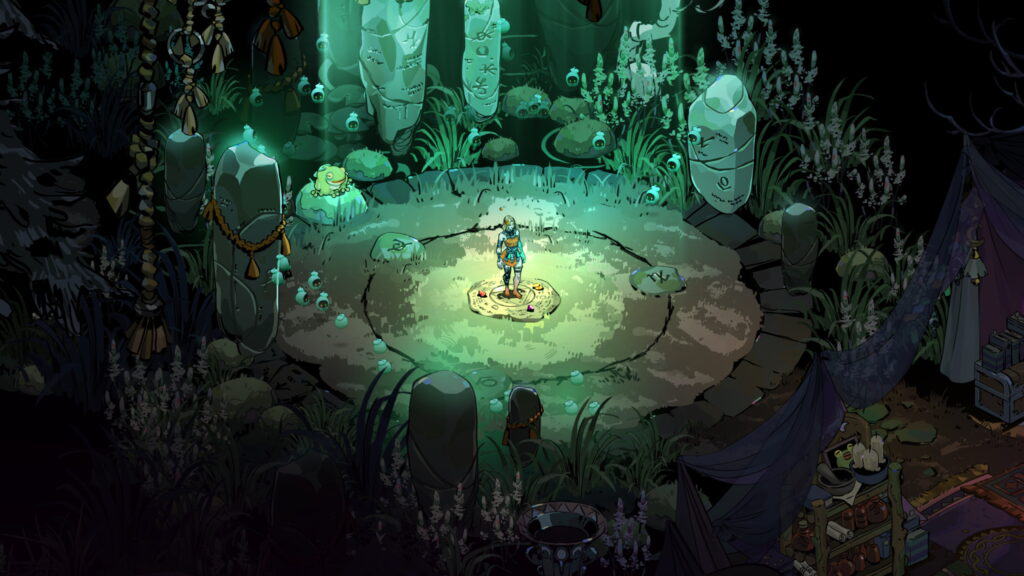Assassin’s Creed Mirage is something a little bit different from the usual historic adventure Ubisoft has given us in recent years, but is it worth your time?
 Assassin’s Creed Mirage represents a step back and a step forward for the franchise. You see, every few years, the Assassin’s Creed series reinvents itself after the format begins to become stale, and usually gains great success when it does.
Assassin’s Creed Mirage represents a step back and a step forward for the franchise. You see, every few years, the Assassin’s Creed series reinvents itself after the format begins to become stale, and usually gains great success when it does.
The first example of this was with Assassin’s Creed 4: Black Flag, which allowed players to not just indulge the usual power fantasy about being an Assassin with superhuman DNA, but to also be a pirate, sailing the Caribbean causing mayhem wherever they went. The second example of this was Assassin’s Creed Origins, which created a stunning Witcher 3-inspired, open-world epic that allowed players to delve into the beginnings of the Assassin’s order while exploring ancient Egypt.
Both Black Flag and Origins reinvigorated a series that was starting to stagnate, and now, Assassin’s Creed Mirage aims to do the same after Assassin’s Creed Valhalla failed to be push the envelope beyond its beloved predecessor, AC: Odyssey. But does it manage to achieve this goal?
A simpler time
Mirage strips back the Assassin’s Creed gameplay, providing an experience that’s more reminiscent of Assassin’s Creed 2, Unity and Syndicate in the sense that the city it’s set in, in this case Baghdad, is also a character in the game. Gone is the vast open world, naval exploration, and the sweeping epic story that sees the protagonist go on a globetrotting quest. What remains is a personal story that focuses on identity, belonging and brotherhood.
Those who go into the game not already knowing Basim’s backstory from Assassin’s Creed Valhalla will find the bright-eyed thief to be an endearing lead. While those who do already know Basim’s true identity from playing the previous entry will find themselves warming to the character and rooting for him to find redemption. The game omits the ‘modern day segments’ and instead positions itself as a prequel to both AC: Valhalla and the original Assassin’s Creed game.
In this sense, Assassin’s Creed Mirage does a nice job of tying the original era of Creed to the new, ‘Hidden Ones’ story that was started in AC: Origins. The game sees players return to the Alamut, the Assassin’s hidden base of operations which was seen in AC1 through to AC Revelations, so it’s fun to see Mirage take the series full circle. Mirage is set several centuries before the original game, but it’s exciting to see such an iconic location from the past blend into the current setting and story of the series.
More of the best
While the game’s aesthetic and vibe reminds us of older Assassin’s Creed games, which is by design, Mirage is absolutely of the Origins, Odyssey and Valhalla fraternity of games. If you’ve played one of the more recent entries, you’ll instantly be at home with Assassin’s Creed Mirage and not much has changed in terms of the general gameplay loops and mechanics. While we could dismissively call AC Mirage a game that just offers more of the same, it feels more like a greatest hits compilation than something just designed to spin the wheels.
It’s also important to point out that Assassin’s Creed Mirage isn’t designed to be the next major entry or sequel in the series. Instead, it’s intended to be a side story that not only links the Hidden Ones story to its predecessors, but one that helps us to understand Basim’s motivations. Basim is an Assassin and Hidden One, but he’s also so much more. The character represents an exciting wild card in the Assassin’s long war against the Templars and we’re curious to see where his arc will go.
It’s also fun to finally see an Assassin’s Creed game make stealth a viable and essential aspect of the gameplay again. Of course, previous entries since Origins have allowed us to make either a stealthy or a tanky character, but Mirage fully puts the hidden into Hidden Ones, encouraging players to strike from the shadows, remain unseen while motivating and empowering them to adopt this style of play.
This was something that the earlier Assassin’s Creed games encouraged, but it was often abandoned in later sequels in favour of lacklustre combat. Or stealth play just didn’t suit the setting of the game. Who wants to sneak around when you’re a war-loving Spartan warrior or an axe-wielding Viking raider?
Blood on the sand
Assassin’s Creed Mirage seems to be an experimental title, one in which Ubisoft is testing the water before committing to a new course for the series. Much like the Resident Evil series did with RE7: Biohazard, sometimes it makes sense to go back to basics and remember what brought you to the dance rather than pushing new gimmicks and innovations – which may or may not stand the test of time.
Mirage isn’t the revolutionary leap forwards that Black Flag and Origins were, but it feels like the precursor to something that could be. The game is a refreshing change of pace, one that delivers a tighter and much more curated experience than some of the more sprawling and recent entries in the series. Baghdad has much more character than much of Ancient Greece and Scandinavia had, as Ubisoft were able to pour all their effort into one singular setting, just like Florence, Rome and other city-based maps before it.
Due to Basim’s propensity to crave vengeance and the pursuit of his own desires over the greater good, the character is unlikely to stand shoulder-to-shoulder with characters like Ezio in terms of popularity. However, his narrative arc is certainly a fascinating one, and Assassin’s Creed Mirage achieved exactly what it was aiming to do – it got us excited for the next main chapter in the saga while we had fun along the way.






